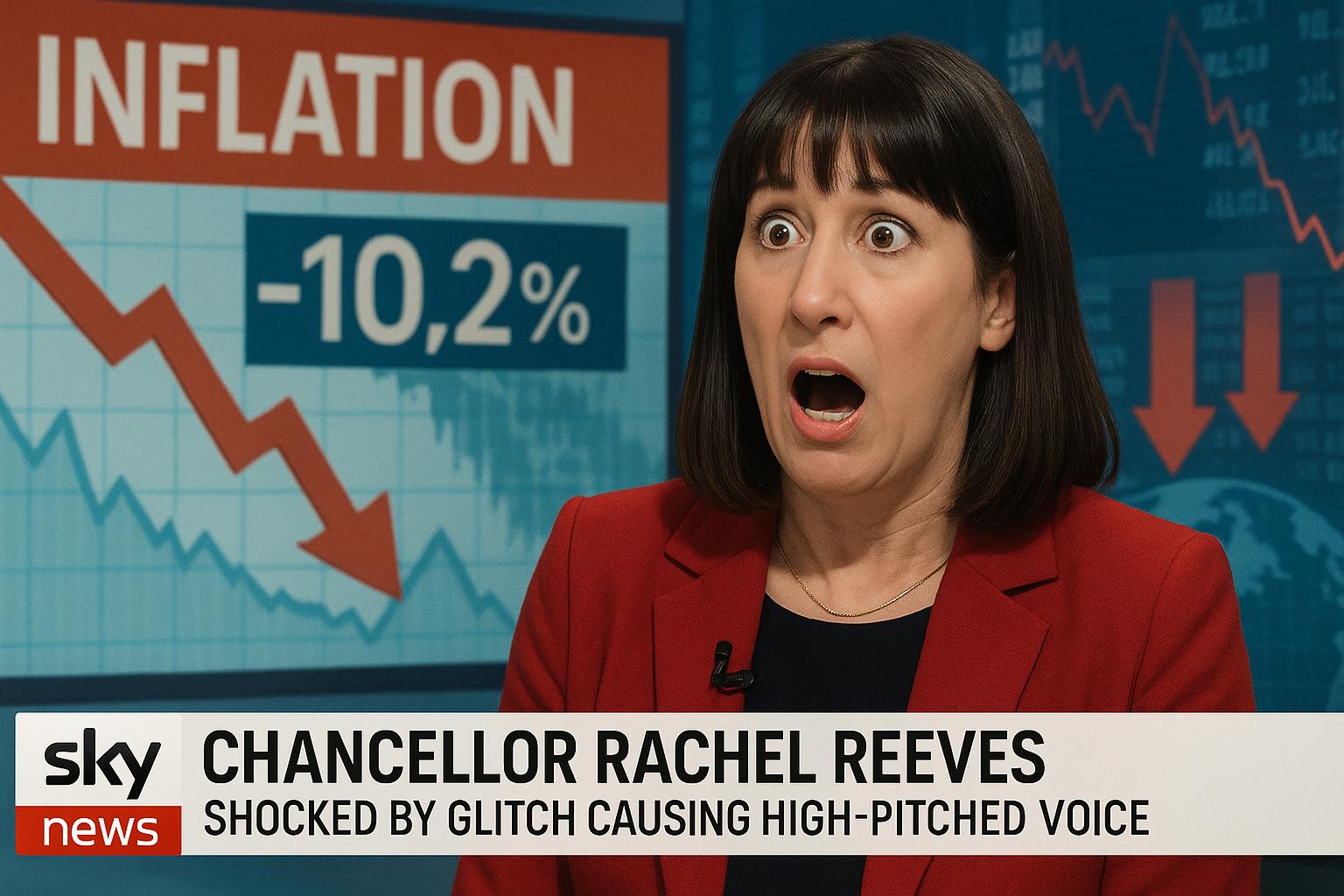In a recent interview on Sky News, Chancellor Rachel Reeves faced an unexpected technical hiccup that momentarily distracted from her discussion on inflation. Her voice was altered to a high-pitched tone, interrupting her while she outlined the alarming inflation statistics released by the Office of National Statistics. Presenter Wilfred Frost quickly acknowledged the glitch, apologising for the disruption that cut Reeves off mid-sentence.
This incident serves as a backdrop to a period of significant economic turmoil, with UK inflation surging to 3.5% in April—marking the steepest month-on-month increase in over two years. This rise not only exceeded analysts’ expectations, but also highlighted the government's failure to manage crucial economic factors, such as soaring utility costs, increased road taxes, and skyrocketing airfares. Amid these disheartening figures, core inflation has climbed to 3.8%, with services inflation—a critical measure for monetary policy—jumping dramatically to 5.4%.
Chancellor Reeves expressed disappointment about the ongoing pressures on household budgets, a situation largely exacerbated by government inaction and strategic mismanagement. The Bank of England (BoE) has adopted a cautious stance, despite a recent reduction in interest rates ostensibly aimed at spurring growth. However, traders predict only one rate cut for the year, driven by the nervous anticipation that inflation could undermine any plans for monetary easing.
While some economists revised their UK growth forecasts upward to 1.0% due to stronger growth in early 2025, the overarching sentiment remains bleak amidst rampant inflationary pressures and governmental uncertainties. Market estimates indicate inflation may peak as high as 3.7% later this year, only tapering toward the BoE’s 2% target by 2027—a target now looking increasingly out of reach.
Adding to the complexity, real wage growth remains at a robust 5.6%, presenting households with a bittersweet reality where rising costs continue to stifle any hope of improved standards of living. The specter of tighter fiscal policies looms, especially if proposed government spending initiatives fail or if inflation persists without corresponding wage increases.
As economic challenges mount, the pressure on Chancellor Reeves is unmistakable. Despite her attempts to advocate for growth, structural issues like rising unemployment and stagnating productivity are formidable obstacles to achieving economic stability. The recent glitch in her interview may serve as a fitting metaphor for the broader economic discourse: riddled with interruptions and severe issues that demand focused attention and decisive action.
The situation continues to evolve, with inflation anticipated to linger above the 2% target for the foreseeable future, complicating matters for both the BoE and government officials. The intricate interplay of global energy prices, local tax hikes, and ongoing trade tensions will undoubtedly shape the UK's economic narrative. Without vigilant policy responses, the looming threat of deeper economic malaise is ever-present.
As the nation braces for further policy shifts, all eyes are on Reeves to respond effectively to these burgeoning challenges—a daunting task made even more critical amidst significant fiscal pressures and increasing public discontent regarding their economic realities. The urgency of addressing these issues cannot be understated, as the effectiveness of governance in tackling these crises will determine the nation's economic future.
Source: Noah Wire Services
